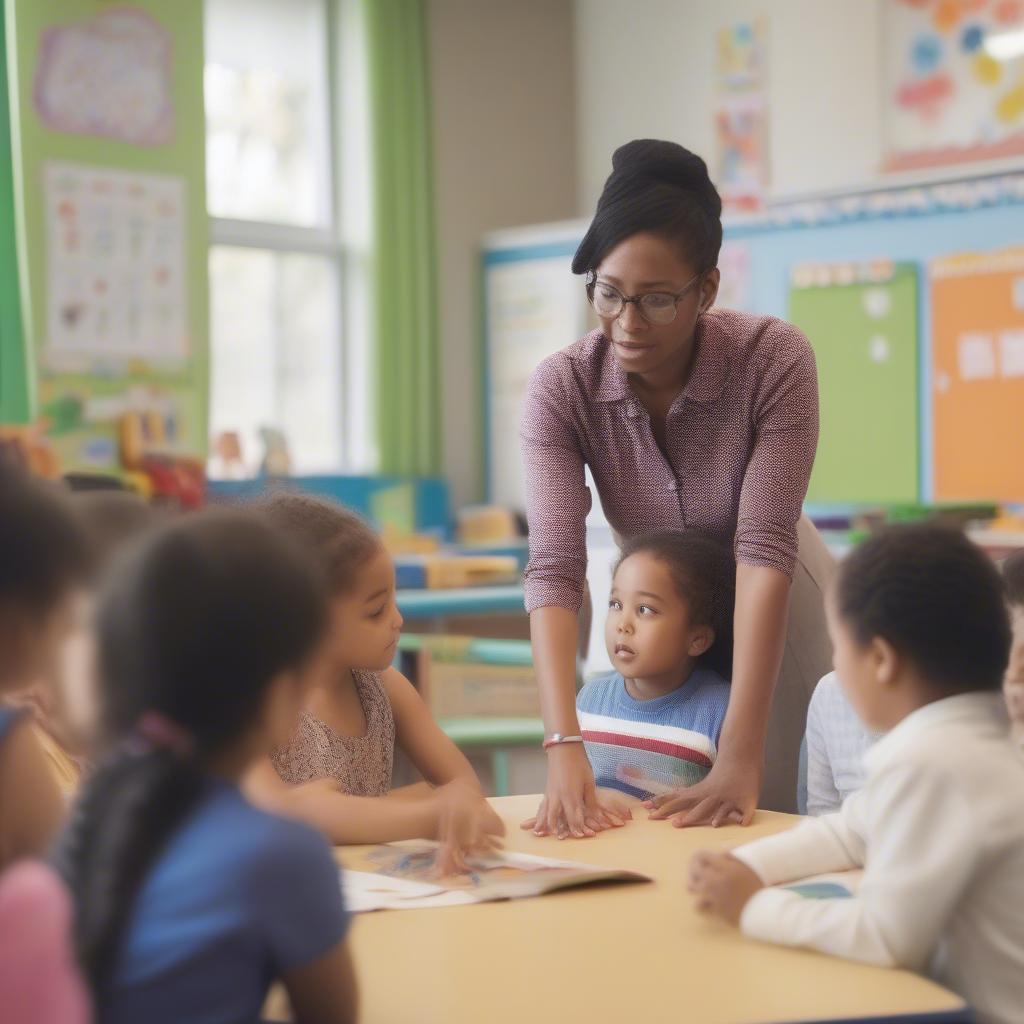“Like father, like son,” this proverb partly speaks to the importance of observing young children. Children are like blank sheets of paper; every action, every word is a unique imprint, revealing hidden potentials and innate qualities. So, how can we recognize each child’s talents and nurture them effectively? Let’s explore the skill of observation in early childhood assessment!
Observation Skills: Windows to a Child’s Soul
Concept and Significance
Observation skills in early childhood assessment are the ability to monitor, record, and analyze children’s behavioral expressions, emotions, skills, and development within the early childhood education environment. This helps teachers understand each child’s strengths and weaknesses, thereby providing appropriate educational methods to help children develop comprehensively in all aspects.
The Role of Observation Skills
- Grasping a Child’s Potential: Observation helps teachers discover children’s aptitudes, talents, and hidden abilities, guiding them towards suitable activities.
- Accurately Assessing Child Development: Through observation, teachers can recognize a child’s developmental level in physical, cognitive, language, social skills, emotions, etc. This allows teachers to implement appropriate educational measures to facilitate children’s progress.
- Building Positive Teacher-Student Relationships: Observation demonstrates a teacher’s care and understanding of each student. This helps teachers build positive relationships, fostering trust and affection from the children.
Tips for Developing Observation Skills for Preschool Teachers
1. Maintain a Positive and Keen Mindset
“Look without seeing, listen without hearing,” that is the mindset of a good teacher. Teachers need to maintain a positive and keen mindset in observing and recording every expression of children. In addition to paying attention to obvious actions, teachers should also notice hidden actions, words, facial expressions, and body language of children.
2. Apply Appropriate Observation Methods
- Natural Observation: Teachers observe children during daily activities, play, learning, communication, etc.
- Planned Observation: Teachers plan to observe children in specific activities, such as: observing children during drawing activities, building blocks play, participating in physical games, etc.
- Thematic Observation: Teachers observe children according to specific themes, such as: observing children’s language development, observing children’s problem-solving skills, etc.
3. Utilize Supporting Tools
- Child Development Tracking Records: This is an important tool to help teachers record and store information about children, thereby monitoring their overall development.
- Notebooks: Teachers should use notebooks to jot down important points, special expressions of children, questions that need answers, etc.
- Audio and Video Recording Devices: Audio and video recording devices can be used to record children’s activities, helping teachers analyze and evaluate more objectively.
4. Analyze Observation Results
After observing, teachers need to analyze and evaluate the collected information. It is necessary to identify children’s strengths and weaknesses, skills that need to be developed, and problems that need to be addressed.
Advice from Experts
“Observation skills are a crucial factor in helping teachers succeed in early childhood education,” education expert Mr. Tran Van A, author of the book “Effective Teaching Methods for Preschool Children” shares. “Teachers need to constantly cultivate observation skills and learn from the experiences of predecessors to improve work efficiency.”
Enhance Interaction:
Want to learn more about other observation skills? Visit the website “KỸ NĂNG MỀM” to explore more helpful articles! You can contact us via phone number 0372666666 or visit us at 55 To Tien Thanh, Hanoi.

Conclusion
Observation skills are the “secret” that helps preschool teachers discover and unlock children’s potential, while contributing to creating an effective educational environment. By always maintaining a positive, keen mindset, applying appropriate methods, and using effective support tools, you will master observation skills, become a wonderful teacher, and help children develop comprehensively and confidently step into life.